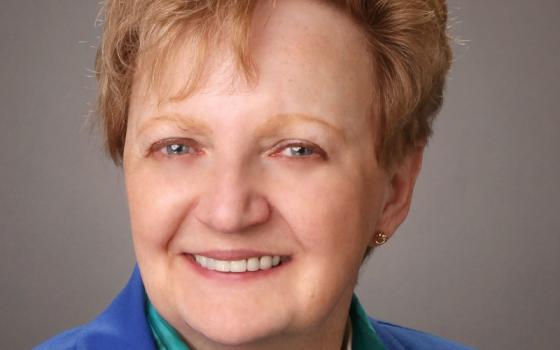Sr. Donna Ciangio of the Dominican Sisters of Caldwell is all about helping organizations work better — especially if the organization is a Catholic parish.
Ciangio is director of Church Leadership Consultation, which promotes parish vitality and pastoral direction, leadership development and faith formation. She also serves on the board of trustees of Caldwell University and the Center for Ministry Development and is chairperson of the North American Forum for Small Christian Communities.
She is also an adjunct instructor at Drew University, where she works with doctoral students who are ministers from other denominations, and is director of faith formation at St. Rose of Lima Parish in Short Hills, New Jersey.
GSR: How do you get a parish to work better? And as long as they're holding Mass and meeting the spiritual needs of parishioners, what more is there?
Ciangio: Right now, I'm working a lot with parish staffs and parish councils. How I got to be the expert on parish councils, I'm not sure.
But it's about trying to get them to see the parish as a way of continuing the work of Christ. Which doesn't sound like much, but most parishes just go on holding Mass and have a few things going on, but what is the real mission of the parish? What does it mean to be a disciple? And they need to ask themselves, how is the parish a school of discipleship? That's probably my biggest interest and focus of my work.
I'm working with parish staffs and asking them, what is their mission? What is their mission statement, and does it really say anything? You talk to a eucharistic minister, and they say, "I give out the Eucharist," and that's as far as they think.
Someone needs to ask them, "What have you learned? What are the needs out there?" I'm trying to get people to have a bigger sense of what they're doing.
When a lot of people hear the words "mission statement," they roll their eyes and think it's just busywork for a committee.
They have to engage with the mission statement. So I always incorporate Matthew 28:19, "Go therefore and make disciples of all nations," then we write it into a prayer, and adapt it to the needs and the ministries of the parish. That gets the regular people involved in the parish mission.
The parish council needs to have some goals and decide: What do they want to accomplish in the next 18 months? Most parish councils want to pave the church parking lot, but they're not any more visionary than that. They need to be asking, "How do we engage millennials? How do we make things happen? And what are the things that need to happen?" There are great books on parish councils that I don't think anyone has ever cracked open.
Some of the ministers I work with at Drew University, they go, "Oh my God, I've never thought of that. I just thought, we're the church, we just do what we do."
So how do you turn a staid parish council into a vibrant, motivating force in a parish?
You do have resistant parishes. They say, "We don't have to pray, we can say the Our Father." But their first responsibility is to pray together and build community, and you do that by faith sharing. So your first responsibility is to get to know each other. And for those who think they don't need to do this, it's what everybody else does. It's what businesses do. It's how things work.
I often ask people, "If your parish were to close tomorrow, would anyone miss it?"
And they say, "Of course we would."
And I say, "No, you're the parishioners. But what about the town? What are you doing to minister to it? Would they miss it?"
It's an important question: Who are you serving? This little population that shows up every Sunday?
Catholic parishes are defined by territory, and canon law says you're responsible for every soul in the parish. That means everyone, whether they're a member or not.
[Dan Stockman is national correspondent for Global Sisters Report. His email address is [email protected]. Follow him on Twitter or on Facebook.]

